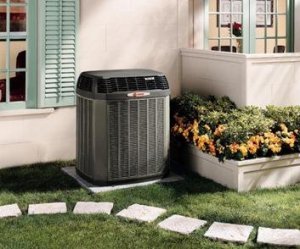When you’re investing in a new air conditioner for your home, size absolutely matters. But that doesn’t mean that bigger is always better. You don’t want an air conditioner that’s too big or too small. The best air conditioner size will be just right for the square footage and layout of your home.
If you’re interested in AC service in Jupiter, Fl, our team is here to help. We can assess your current HVAC system and talk to you about your heating and cooling needs to offer the best system for your home and family. Before you take the plunge on a new AC, keep reading to learn why size matters with AC installation.
Understanding HVAC Size
Air conditioners are not one-size-fits-all. When it comes to heating and cooling your home, there is an AC that is just right. HVAC professionals measure an air conditioner’s heating and cooling ability in BTUs—short for British Thermal Unit.
To put it simply, this measurement indicates how much energy your AC uses to remove heat from your home within an hour. Your air conditioner needs 20 BTUs for each square foot of living space that will be heated and cooled. To determine what size AC unit you need, multiply the square feet in your home by 20. For example, a home that is 1,500 square feet requires a unit with 30,000 BTUs.
Air conditioners come in size ranges, meaning that an air conditioner is rated to cool a home within a range of square feet. Most residential air conditioners fall within a 1.5 to 5-ton range—or 18,000 to 60,000 BTUs. If your home is much larger than 3,000 square feet, you may have to look at larger AC unit options.
Why Does It Matter If an AC Is Too Big or Too Small?
Wear and Tear
A unit that is too small may not be able to keep up with your heating and cooling needs. No matter how long a smaller unit runs, it won’t be able to maintain a temperature in your home. This can lead to your HVAC system running for longer periods of time or turning on more often in an attempt to reach your desired temperature.
And larger units have the same problem. An oversized AC has so much power that it will heat or cool your home quickly and then turn off before a cycle is over—also called short cycling. Both of these problems leave your unit working harder to produce lesser results. Both larger and smaller units have the potential for a much shorter lifespan than a “just right” air conditioner.
Energy Efficiency
Larger and smaller air conditioners use more energy to maintain the temperature in your home. A correctly sized HVAC system is the most efficient option for your home because it is designed to meet your specific needs. You’ll spend less money each month on your energy bills with an AC unit designed to fit your home.
Expense
You may think you’re saving money by installing a smaller AC unit, but that may not be the case. You could wind up spending more on your energy bill each month. Plus, with a shorter lifespan due to wear and tear, you can expect to replace your smaller unit earlier than you want.
The same goes for a larger unit. You’re not spending more up front to save on monthly energy bills because it doesn’t work that way. A correctly-sized AC unit will actually help your home be even more energy efficient so that you can save on your monthly energy bill instead of spending more.
Contact Mechanical Air Conditioning for your central air conditioning needs.

